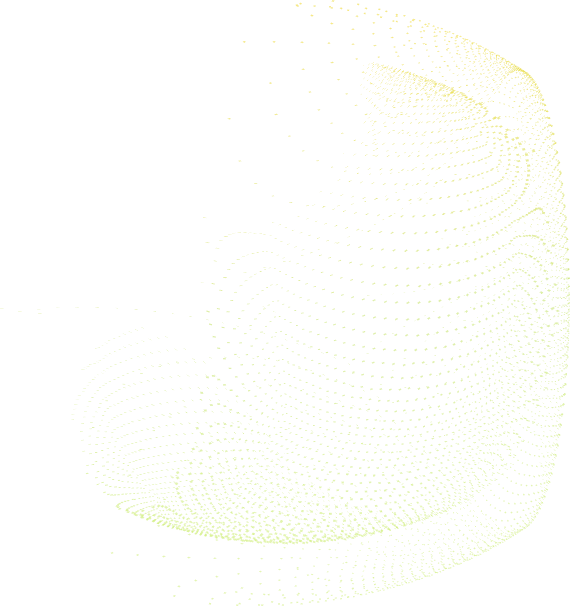Ethereum Development Company
At Zpoken, we lead as a premier Ethereum development firm, specializing in advanced solutions for DeFi and Application Layer engineering. Our extensive expertise serves a diverse clientele, ranging from pioneering protocols to established projects. We collaborate closely with different businesses, ensuring the delivery of secure and highly efficient solutions on the forefront of the innovative Ethereum network

What is Ethereum?

Learn more
With Ethereum 2.0 underway, it aims to transition from proof-of-work (requiring computational power) to proof-of-stake (requiring ownership stake) to improve scalability and reduce energy consumption, aiming for 100,000 transactions per second, up from its current 15-30
Ethereum Key Features
Smart Contract Functionality
Ethereum allows developers to write code that can automatically execute transactions and other specific actions on the blockchain when predetermined conditions are met, without the need for a middleman
Decentralization
By using a blockchain, Ethereum ensures that applications are built on a peer-to-peer network, offering a higher degree of resistance to censorship and downtime
Ethereum Virtual Machine (EVM)
The EVM is a powerful, sandboxed virtual stack embedded within each Ethereum node, providing the runtime environment for smart contracts, making the process of creating blockchain applications more efficient and secure
Tokenization
Ethereum enables the creation of digital tokens through standards like ERC-20 for fungible tokens and ERC-721 (ERC-1155) for non-fungible tokens (NFTs), which can represent a wide array of assets and are integral to many blockchain projects
Ethereum Development Services
We are an Ethereum technology solutions provider, offering engineering services in the development of decentralized applications that harness the speed, scalability, and security of the Ethereum network
- Decentralized Applications
- NFT
- Web3 Infrastructure
Unlock a new realm of trading possibilities with a decentralized exchange on Ethereum, where innovation meets reliability. By tapping into Ethereum robust network, this DEX transforms the way you trade, offering seamless transactions with unparalleled liquidity and security. Experience the power of decentralized finance with a platform that not only optimizes trade execution but also provides a transparent and tamper-proof environment. Designed to handle high volumes and complex trades, this DEX empowers users with greater control and efficiency, all while staying at the forefront of blockchain technology. Dive into a trading experience that is as dynamic as Ethereum itself, where every swap and trade is executed with speed and precision
Transform your vision into reality with a custom decentralized application on Ethereum, where the possibilities are as expansive as the blockchain itself. Ethereum’s versatile smart contracts and expansive ecosystem make it the ideal foundation for innovative dApps that redefine user interaction and functionality. Harness the power of Ethereum to build tailored solutions that are not only secure and transparent but also scalable and adaptable to your unique needs. Whether it’s streamlining processes or creating new user experiences, Ethereum robust infrastructure supports the seamless integration of complex features, ensuring your dApp stands out in the ever-evolving digital landscape. Embrace the future of application development with Ethereum and turn your groundbreaking ideas into impactful digital experiences
Unleash the potential of your NFT marketplace on Ethereum, the gold standard of blockchain innovation. Ethereum’s unparalleled smart contract capabilities and extensive developer ecosystem provide a solid foundation for crafting a dynamic NFT marketplace that stands out. This network not only ensures secure and transparent transactions but also offers seamless integration with existing DeFi and NFT projects, amplifying your marketplace’s reach and functionality. Leverage Ethereum vast network effects to connect with a global audience and enhance liquidity for your digital assets. With Ethereum, your NFT marketplace can deliver a cutting-edge experience that attracts creators, collectors, and investors, setting a new benchmark in the world of digital collectibles
Elevate your crypto wallet with Ethereum’s robust infrastructure, renowned for its innovation and security. By developing on Ethereum, you tap into its advanced smart contract capabilities, ensuring your wallet offers unparalleled functionality and flexibility. The Ethereum blockchain’s high security standards and widespread acceptance provide a reliable foundation for managing digital assets, while its vibrant ecosystem enhances integration opportunities with a multitude of decentralized applications. With Ethereum, your crypto wallet will not only safeguard assets with cutting-edge encryption but also offer seamless interactions across the expansive DeFi landscape, making it a trusted and versatile tool for users in the ever-evolving digital currency space
Unlock the power of decentralized data with an oracle solution on Ethereum. This advanced system integrates real-world data directly into Ethereum smart contracts, bridging the gap between on-chain and off-chain information. By leveraging decentralized oracles, you ensure data accuracy and reliability without relying on a single point of failure. This enhances the trustworthiness of smart contract interactions and supports a seamless flow of real-time information within the Web3 ecosystem. As Ethereum continues to lead the charge in blockchain innovation, utilizing a decentralized oracle ensures your applications operate with the highest level of data integrity and decentralization
Our Ethereum development flow
Validation
- Ideation and brainstorming
- Research papers
- Hypothesis tests and validation
Architecture
- Project architecture
- Technical Roadmap
- Specifications and requirements
Token engineering & Mathematical model
- Token definition
- Mathematical modelling
- Compliance framework
Development & Implementation
- UX/UI PoC
- Delivery of MVP / 1st release
- Continuous iteration and development
- Tests and key metrics measurements
Launch & Scale
- Team augmentation & hiring
- Audit processes and public documentation
- Delivery of V1.0
- Mainnet deployments and production environment setup
Ethereum smart contract samples
Check our Solidity smart contract sample developed for Ethereum network.
// SPDX-License-Identifier: MIT
pragma solidity ^0.8.0;
import "@openzeppelin/contracts/token/ERC20/ERC20.sol";
contract MyToken is ERC20 {
constructor(string memory name, string memory symbol) ERC20(name, symbol) {
_mint(msg.sender, 1000 * 10**decimals());
}
}
Polygon tech stack
Solidity
Solidity is a high-level, statically-typed programming language designed for developing smart contracts that run on the Ethereum Virtual Machine (EVM). As the primary language for Ethereum blockchain development, it enables the creation of complex contracts for decentralized finance, token creation, and other blockchain-based applications. Solidity's syntax is similar to that of JavaScript and it supports inheritance, libraries, and complex user-defined types, making it accessible to developers with a background in modern programming languages
Vyper
Vyper is a contract-oriented, pythonic programming language for writing Ethereum smart contracts. It prioritizes simplicity and security, with a syntax resembling Python, and is designed to reduce risks and increase the readability and auditability of smart contracts
Projects we build
Project description iLend is a decentralized finance protocol developed on the Injective network. It offers the ability to engage in lending and borrowing activities in a decentralized, transparent, and efficient manner. The protocol leverages Injective Protocol’s ability to offer fast, secure, and EVM-compatible DeFi transactions across multiple blockchain ecosystems. Project features 1. Basic borrow and…
Project description Deepwaters is the fusion of traditional finance and blockchain technology into a hybridarchitecture, leveraging proven concepts from both. Deepwaters aims to bring maturity to DeFi and enable systems that power the next generation of financial applications. Zpoken built Vault and lending contracts for DeepWaters, this solutions help to accumulate liquidity that powers trading…
Project description Dexilon is the first DEX that is run on a limit order book powered by the native blockchain. Democratically managed by the community in a trustless and verifiable way from the world’s leading brands. Core features making Dexilon unique and easy for users onboarding: Zpoken developed The development process for Dexilon exchange, a trailblazing…
FAQ
How many validators are there in Ethereum?
As of September 15, 2023, there are 806,759 active validators on Ethereum.
How are validators selected?
In each slot, a single validator is selected through a pseudo-random process using the RANDAO algorithm, which combines a hash from the block proposer with a continuously updated seed. This generated value determines the specific validator from the entire set. The selection of the validator is predetermined four epochs ahead of time.
How many tokens are there in Ethereum?
Unlike Bitcoin, which has a limited supply, Ethereum has an infinite supply. As of this writing, there are 122.7 million ETH in circulation.
How many nodes does Ethereum have 2023?
The number of Ethereum nodes is not static and can fluctuate over time. Additionally, there is no single definitive source that tracks all Ethereum nodes, since some nodes are private or not fully discoverable. Publicly accessible data, however, can give a general estimate. As of early to mid-2024, various Ethereum node trackers (such as ethernodes.org) typically report several thousand publicly reachable nodes—often ranging anywhere from around 4,000 to 7,000 at a given time. It’s important to note that this figure only represents nodes visible to these trackers and does not include private or firewalled nodes that do not appear in such listings. The total number, including private deployments, institutional nodes, and nodes hidden behind restrictive network policies, is likely higher.

